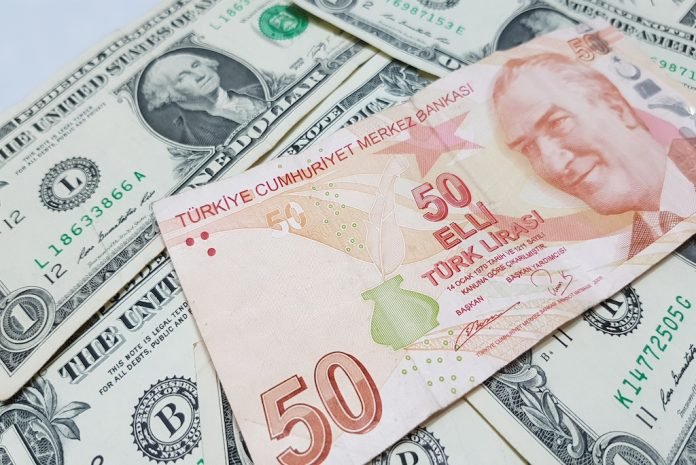According to a recent poll, 42,1 percent of the Turkish public believes that the loss in value of the Turkish lira against the US dollar is part of “a plot against Turkey devised by foreign powers.”
The MetroPoll polling company on Thursday revealed an excerpt from its recent report, titled “Turkey’s Pulse April 2018,” showing how the Turkish public has reacted to the lira’s recent slide.
While 42,1 percent blamed foreign powers, only 24,8 percent saw the incumbent government as responsible. Eighteen percent said the reason for the lira’s decline was negative developments in the world economy, whereas 9,2 percent attributed the weak foundations of the Turkish economy.
Among those who believed there was a plot against Turkey, 20 percent are Republican People’s Party (CHP) voters, while 58,5 percent of them support the ruling Justice and Development Party (AKP).
However, 71,4 percent of those surveyed thought the loss in value of the lira affected them negatively. On Friday, 1 US dollar is valued 4,48 Turkish lira, while it was TL 4 on April 17.
Many investors may give up on Turkey unless the central bank raises interest rates to halt a slump in the lira, said Tim Ash, senior emerging market strategist at Blue Bay Asset Management. The central bank needs to raise interest rates by at least 150-200 basis points to stop the possible exodus, the London-based Ash said on Friday.
“If the central bank disappoints then the danger is that many investors just throw in the towel, assuming that it is impossible to invest in Turkey given Erdoğan’s so unorthodox views on monetary policy and likely his increasing dominance,” he said.
Turkey’s lira has slumped to record lows against the dollar and euro after the central bank failed to raise interest rates following a meeting with President Recep Tayyip Erdoğan last week. Erdoğan told investors during a visit to the UK on Monday that he may cut interest rates after a presidential election on June 24 and tighten his grip on monetary policy, intensifying concerns.
Ash, who listened to Erdoğan reiterate how higher rates are inflationary along with other analysts and investors in London, said Turkey was now approaching a critical decision point. Erdoğan’s rhetoric in London, which runs against conventional economic theory, “really left serious concerns,” contrasting with some readouts from the press in Turkey that said the president had great sessions with investors, Ash said.
“So it has left the question as to why Erdoğan would bother meeting institutional investors in London and trying to explain views that are so out of kilter with how the market and most institutional investors who invest in Turkey think,” he said. “There was no way that this would go down well. And hence this was a really high-risk strategy.”
Meanwhile, according to Korkut Boratav, a left-wing economist and retired university professor, Turkey may have passed the critical threshold to enter a financial crisis. The point was probably reached in May, when two-year bond yields exceeded 17 percent compared with 13 percent at the end of February, Boratav said, according to business website Patronlar Dunyası.
Another key metric for a crisis is portfolio movements, Boratav said. Portfolio inflows surged 78 percent in January and February, creating a balloon effect, but a reversal started in March, with outflows of $1.4 billion, he said. It appears that this trend continued in April and May, he said.
At the same time the government is pumping the economy, introducing more incentives to spur domestic demand and at the same time widening the current account deficit further, he said. Turkey needs the portfolio inflows to finance the shortfall, but isn’t getting them, he said.
Adding to this critical situation, President Erdoğan visited London this week, and his statements about interest rates caused more concern among foreign investors, who are responsible for deciding on whether or not Turkish portfolio flows are positive or negative, Boratav said. (SCF with turkishminute.com)
















